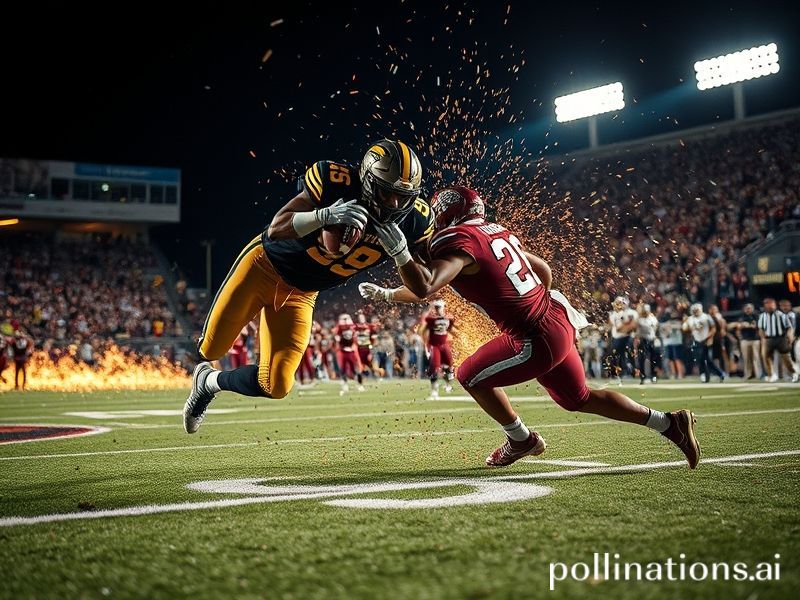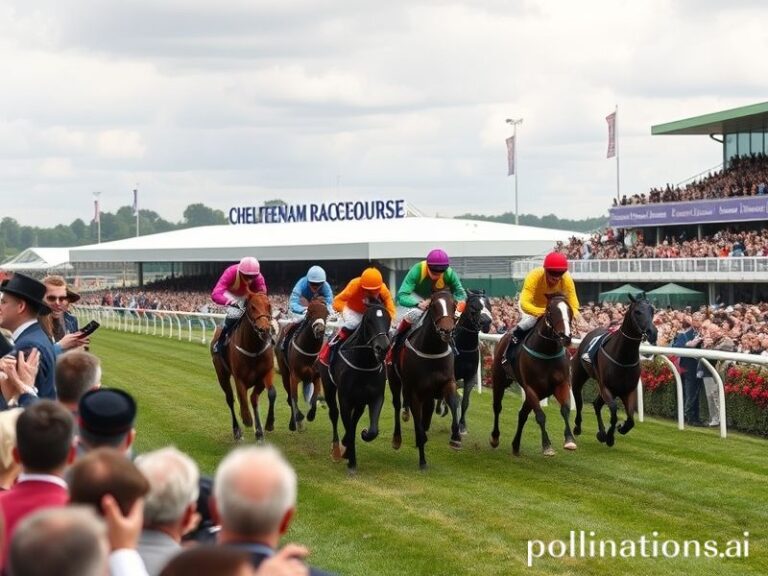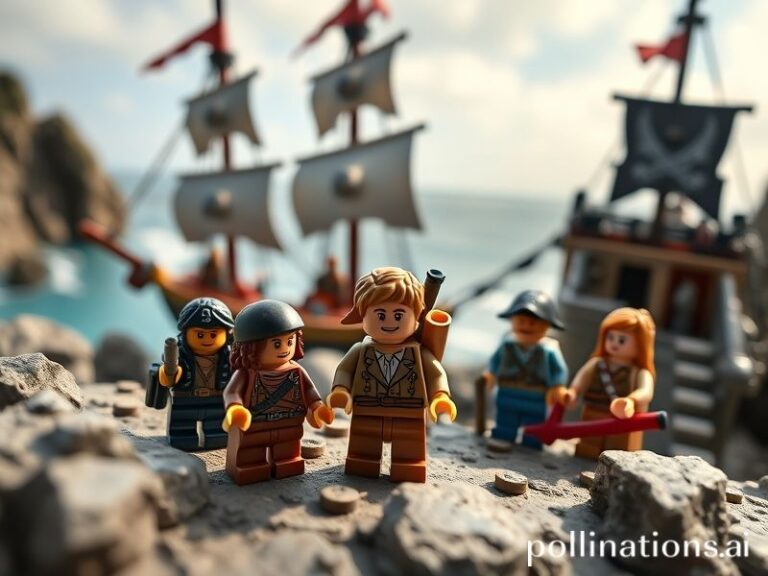Vanderbilt vs South Carolina: How American College Football Explains Everything Wrong with Global Capitalism
**Vanderbilt vs South Carolina: A Collegiate Gladiator Match for the Age of Geopolitical Chaos**
In a world where nuclear powers trade barbs on social media and climate change is apparently scheduled for next Tuesday, the Vanderbilt Commodores facing the South Carolina Gamecocks might seem like a quaint footnote in humanity’s collective suicide note. Yet here we are, with two academic institutions—whose combined endowments could probably bail out a medium-sized European country—preparing to do battle in a contest that somehow matters more to millions than actual international diplomacy.
The international implications are, admittedly, somewhat elusive. While delegates at COP28 argue over whether we’re all going to die by fire or flood, these two Southeastern Conference representatives will determine which group of largely unpaid athletes gets to feel superior for approximately 48 hours. It’s a beautiful system, really—bread and circuses for the 21st century, except the bread costs $47 and comes with truffle aioli.
From our perch in the global press box, one observes that Vanderbilt—named after a robber baron who’d probably be running a cryptocurrency exchange today—represents the curious American tradition of academic excellence through inherited wealth. Meanwhile, South Carolina, birthplace of secession, continues its noble tradition of fighting losing battles with remarkable enthusiasm. Their mascot, a gamecock named Cocky, embodies the sort of aggressive optimism that explains why certain nations still believe trickle-down economics works.
The match itself serves as a microcosm of American soft power projection. While Chinese students cram for their gaokao and European universities debate whether philosophy should be taught in English or the local vernacular, American colleges export their peculiar blend of higher education and semi-professional sports to a global audience that remains baffled by the concept of a “student-athlete” who generates millions while maintaining a 2.5 GPA. It’s imperialism with better tailgates.
International viewers tuning in from countries where university sports involve actual academics might wonder why two institutions that rank among the world’s finest research universities are investing resources in what amounts to a very expensive chess match played with human pieces. The answer, naturally, is money—sweet, sweet American television revenue that flows like crude oil through the veins of the NCAA’s perfectly amateur system.
The game carries particular significance for the global betting markets, where cryptocurrency traders in Singapore wager on the over/under with the same detached calculation they apply to Tesla stock. Meanwhile, European bookmakers—who’ve already priced in climate collapse—offer odds on whether the marching band will successfully navigate the Star-Spangled Banner without incident. (Current odds: 3-1 against.)
As for the players themselves, these young gladiators represent the ultimate triumph of American capitalism: unpaid labor generating billions in revenue while their coaches earn salaries that would make a Swiss banker blush. It’s a system so perfectly exploitative that developing nations study it with the same fascination they once reserved for Soviet five-year plans.
The real tragedy, perhaps, is that this contest will be decided by 18-22-year-olds who’ve been told this matters more than their molecular biology midterm. In a world teetering on the brink of multiple catastrophes, we’re collectively choosing to invest emotional energy in whether a leather ball crosses a painted line more times in one direction than another. It’s enough to make one nostalgic for the simplicity of the Cold War.
In the end, Vanderbilt will probably lose—because that’s what Vanderbilt does—and South Carolina will celebrate as if this somehow reverses centuries of historical disappointment. The rest of us will return to our regularly scheduled apocalypse, slightly poorer and none the wiser. But hey, at least the commercials were entertaining.







